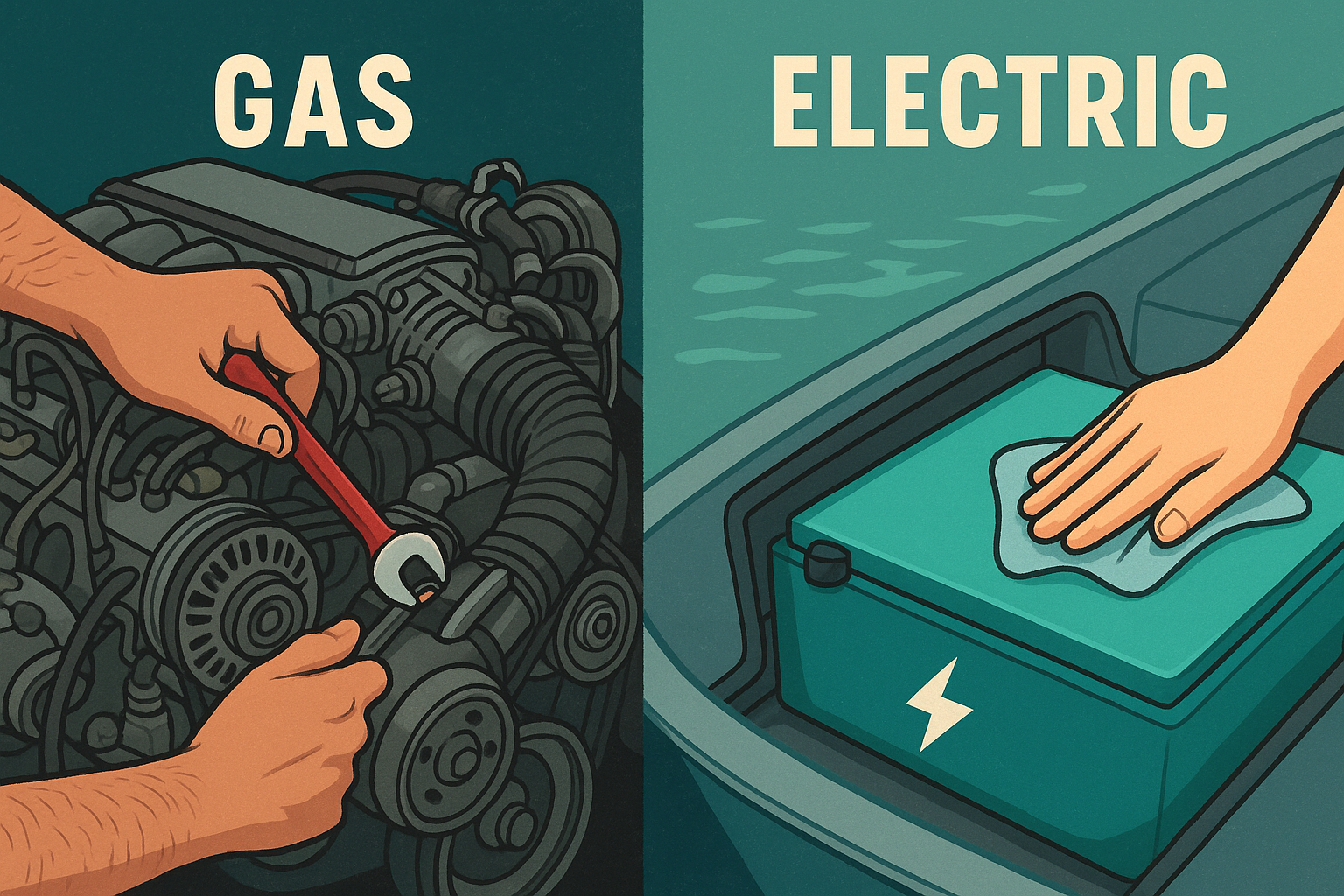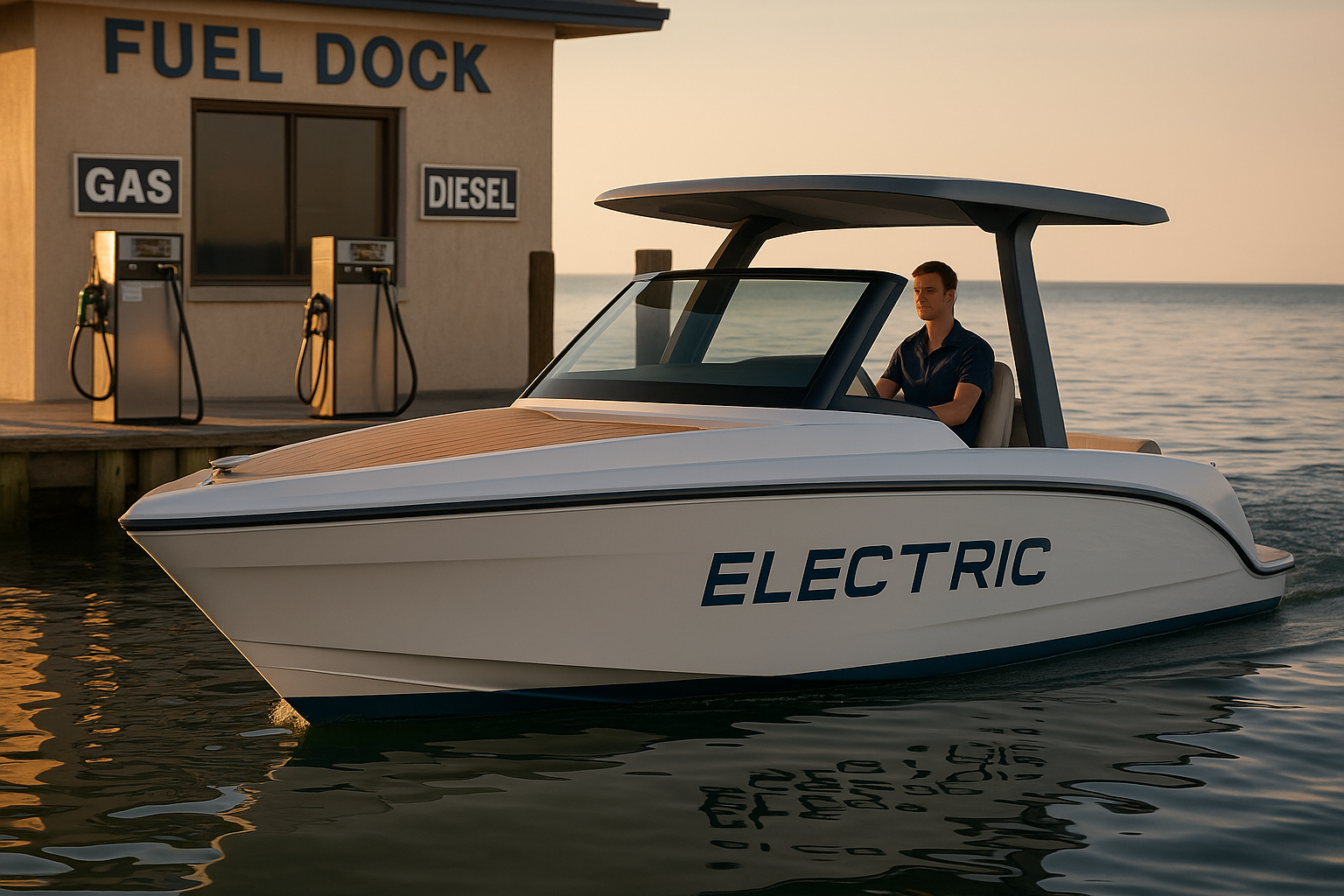Are Electric Boats Worth It in 2025?

The marine world is evolving fast, and electric boats are no longer just futuristic concepts — they’re real, they’re available, and they’re gaining traction. But are they really worth it in 2025? Here’s what you need to know before deciding whether to go electric on the water this year.
1. Performance Has Come a Long Way
Modern electric boats are no longer limited to short harbor hops. Thanks to advancements in lithium batteries and brushless motors, you can now expect speeds and range that rival — and sometimes beat — small gas-powered runabouts. Brands like Candela and Navier have cracked the code on hydrofoiling electric boats that glide above the chop, improving both efficiency and comfort.
Cruising speeds of 20–25 knots and ranges up to 60 miles are now attainable on certain models, especially for day boaters. While you won’t be doing a 200-mile offshore run anytime soon, for lake cruisers, harbor hoppers, and coastal adventurers, electric is becoming practical.
2. Maintenance & Reliability Are Big Wins
One of the biggest perks of electric propulsion is what’s not included: oil changes, fuel filters, impellers, injectors, and all the routine drama of combustion engines. Fewer moving parts mean fewer failure points, less time in the shop, and more time enjoying the water.
And because electric motors offer instant torque, they pair beautifully with joystick controls and advanced maneuvering tech — a smooth, quiet, and responsive driving experience that’s hard to beat.
3. Charging Infrastructure Is Catching Up
This has long been the weak link — and in many regions, it still is. But 2025 is showing serious progress. Marinas in California, Florida, and parts of Europe are now offering dedicated fast-charging docks. Some new boats even offer swappable battery packs or solar-assisted top-ups.
Still, range anxiety is a real consideration. If you’re boating in remote areas or plan on multi-day journeys without access to shore power, electric might not be ready for you yet. But for day boating and overnight marina hops? The network is starting to support it.
4. Sticker Shock vs. Long-Term Savings
Electric boats often carry a premium up front — sometimes 30–50% more than a comparable gas-powered vessel. But when you factor in the lifetime costs — fuel, maintenance, winterization, and repairs — the math starts to shift.
If you’re a frequent boater, especially in a place with high gas prices or easy charging access, the ROI on electric could be just a few seasons away. And let’s not forget: no more trips to the gas dock.
5. Environmental Edge
Whether you’re eco-conscious or just tired of fumes and fuel smells, electric wins hands down. No emissions, no oil slicks, no noise pollution. Just you, the water, and the quiet hum of your motor. For some buyers, that’s worth the investment alone.
So… Are They Worth It?
If you’re a casual or nearshore boater, yes — electric boats are absolutely worth considering in 2025.
Technology, infrastructure, and design have hit a tipping point. They’re not perfect for every mission yet (long-range cruisers, offshore fishers, and remote island hoppers still face challenges), but for weekend warriors, family boaters, and lake life enthusiasts, they’re ready.
And with continued innovation, expect the next few years to make electric the default choice for small and mid-size boats.
Comments (0)
Please log in to add a comment.

